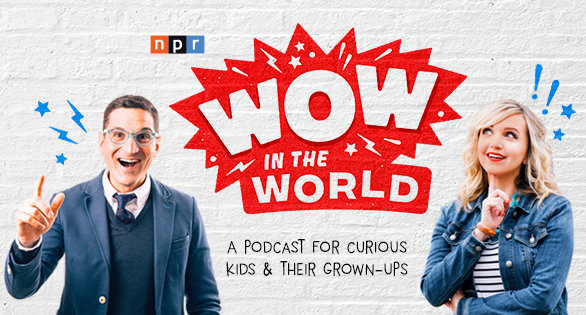 |
Monday, May 8, 2017
 |
NPR’s first kid-focused podcast is taking some narrative lessons from its adult counterpartsLike S-Town and Serial, Wow in the World wants to make listeners feel like they’re helping to solve the show’s mysteries. By Ricardo Bilton. |
 |
The Christian Science Monitor’s new paid, daily product is aiming for 10,000 subscribers in a year“The Daily is really in the service of this mission of making people more thoughtful, less neurotic, more calm, and seeing the world through the lens of progress.” By Laura Hazard Owen. |
 |
The French election is over. What’s next for the Google- and Facebook-backed fact-checking effort there?The experiment might be replicated in other countries, but “it'd be showing a lot of hubris to say ‘everybody should now do CrossCheck’ without doing the proper social science research based on the data.” By Shan Wang. |
What We’re Reading
The New York Times / Rachel Shorey
How The New York Times tallied up the healthcare vote before the House of Representatives did →
“The final dispatch had 13 bylines.”
Medium / Matt McAlister
How much is Facebook sharing worth to publishers? →
“An organic share on Facebook is worth about $0.04 to the publisher…If that was a typical day for this publisher and all the other assumptions are in the right ballpark then Facebook referrals probably drive between 3% and 5% of total digital revenues for Publisher X.”
USA Today / Elizabeth Weise and Brad Heath
USA Today asks FBI to probe rise in fake Facebook followers →
“Facebook suggested three weeks ago that a ‘major spam operation’ had set up the accounts as a way to access and potentially spam and scam its users. These fake accounts follow and comment on publishers' pages to lend a veneer of credibility that might help the account operators connect with real users while veiling them from Facebook’s automatic fake account detectors. USA TODAY appears to have been the main target of this operation.”
The Information / Tom Dotan
How BuzzFeed is betting on Tasty for its IPO →
“Tasty has given BuzzFeed an edge. The company has been able to replicate the approach of over-the-shoulder videos into other genres like Nifty, which teaches simple crafts and home improvement projects. The company has also taken Tasty international with country-specific versions for the U.K., Brazil and Japan.”
WSJ / Alexandra Bruell
The rise of transparent digital ad buying →
Marketers, unhappy with the murky arbitrage model of today’s ad agencies, are forcing a change in how their ads get purchased.
ProPublica / Eric Umansky
How ProPublica is learning to do journalism differently in the age of Trump →
To cover Trump, ProPublica is being more open with its reporting, collaborating with other newsrooms, and embracing uncertainty.
Digiday / Max Willens
Why Cheddar is making classes for Strayer University →
The course, part of Strayer University’s MBA program, are Cheddar-branded and hosted by its founder Jon Steinberg.
BBC News
Facebook publishes fake news ads in UK papers →
“The ads, in papers including The Times, The Guardian and Daily Telegraph, carry a list of 10 things to look out for when deciding if a story is genuine.
They include checking the article date and website address, as well as making sure it isn’t intended as satire.”
The New York Times / Jim Rutenberg
Ad buyers have a say in whether real news survives →
“Facebook is working to do its part to help newspapers. Newspapers are trying to modernize. Now it is time for advertisers to do their part to support the people who make the quality content they want to be associated with, and to reconsider their headlong rush away from them.”
Digiday / Jessica Davies
Spiegel Online has a 10-person Snapchat Discover team →
“Ten people is a big investment for the company, especially given Snapchat is new and therefore relatively unproven in the German market.”